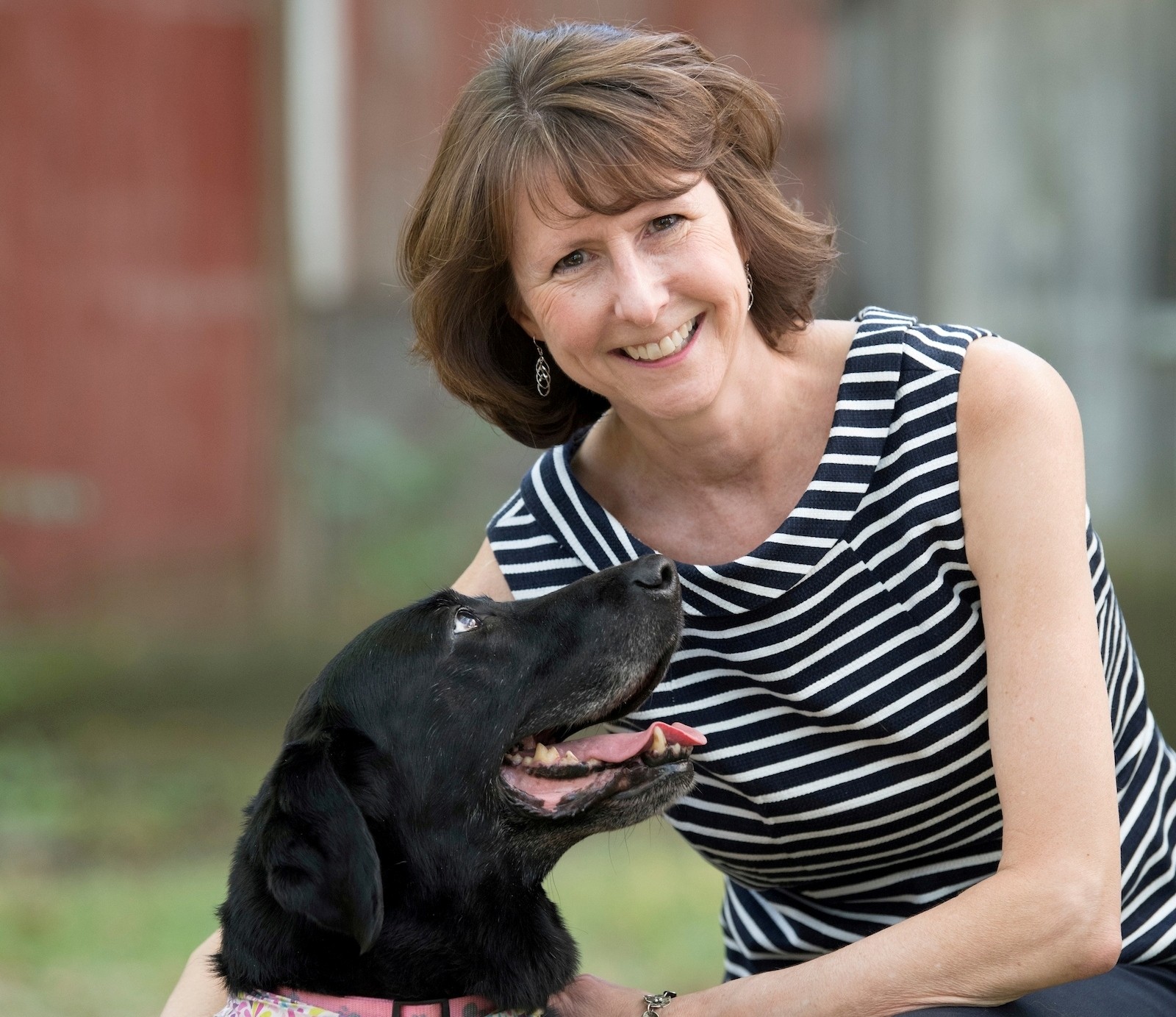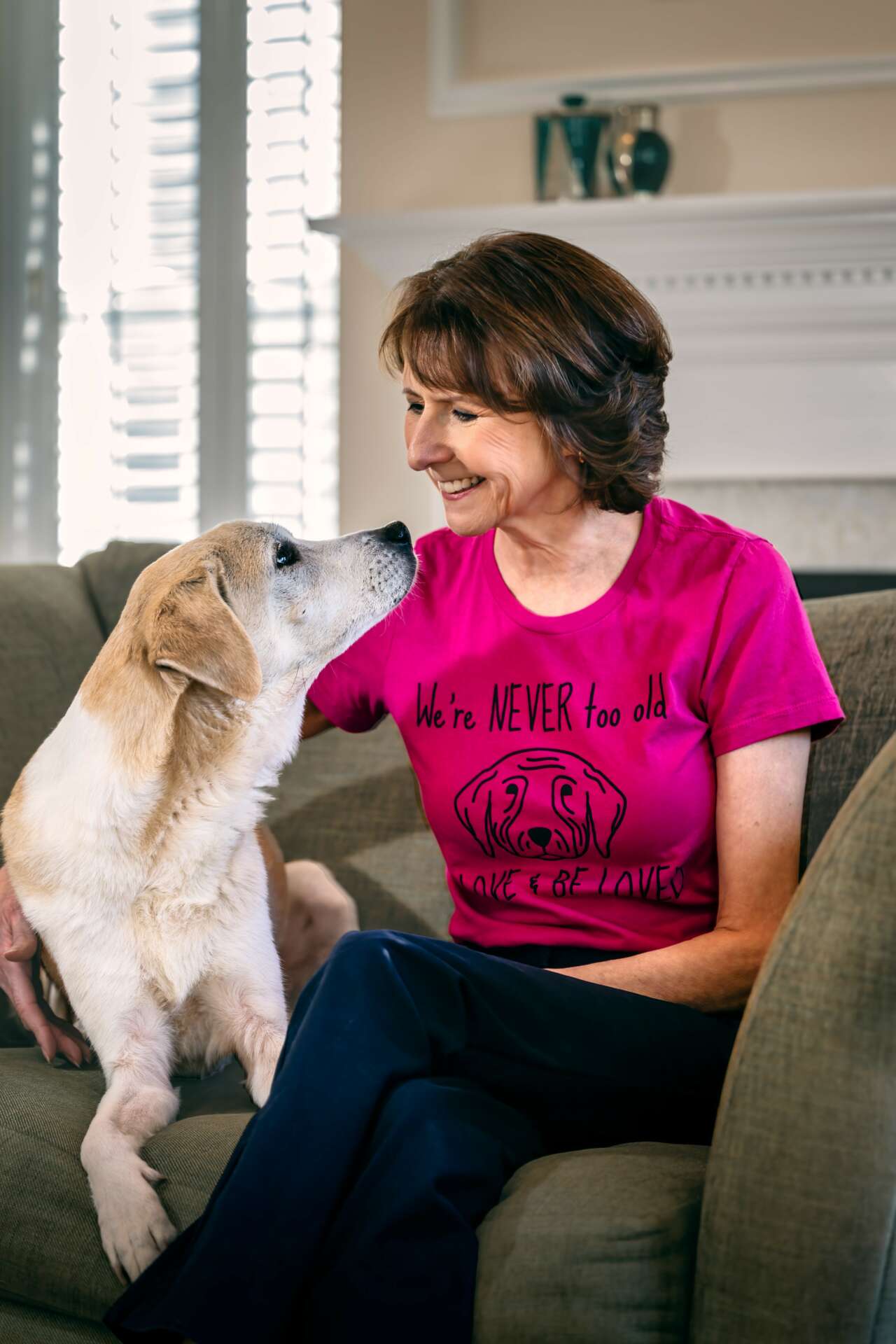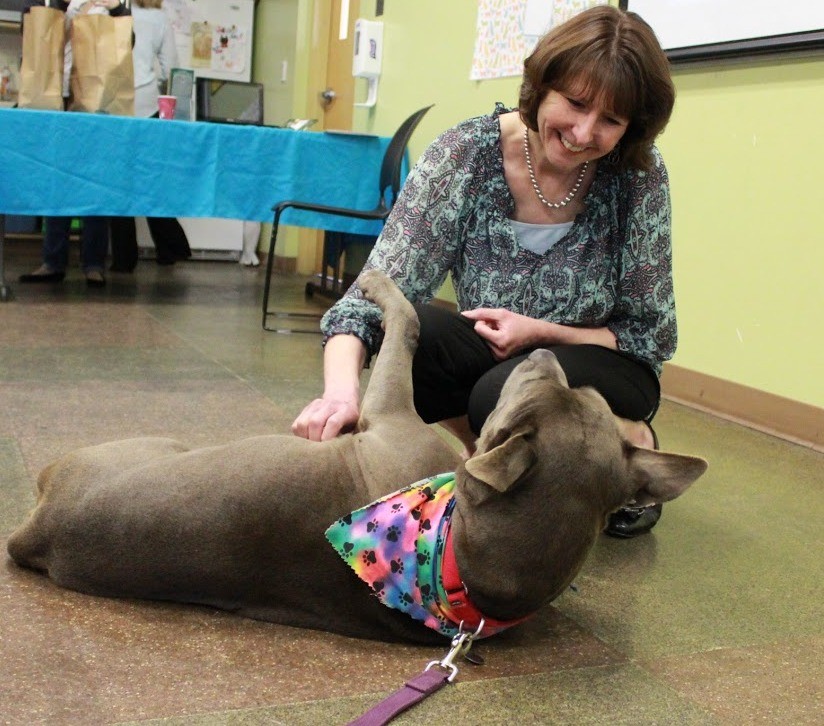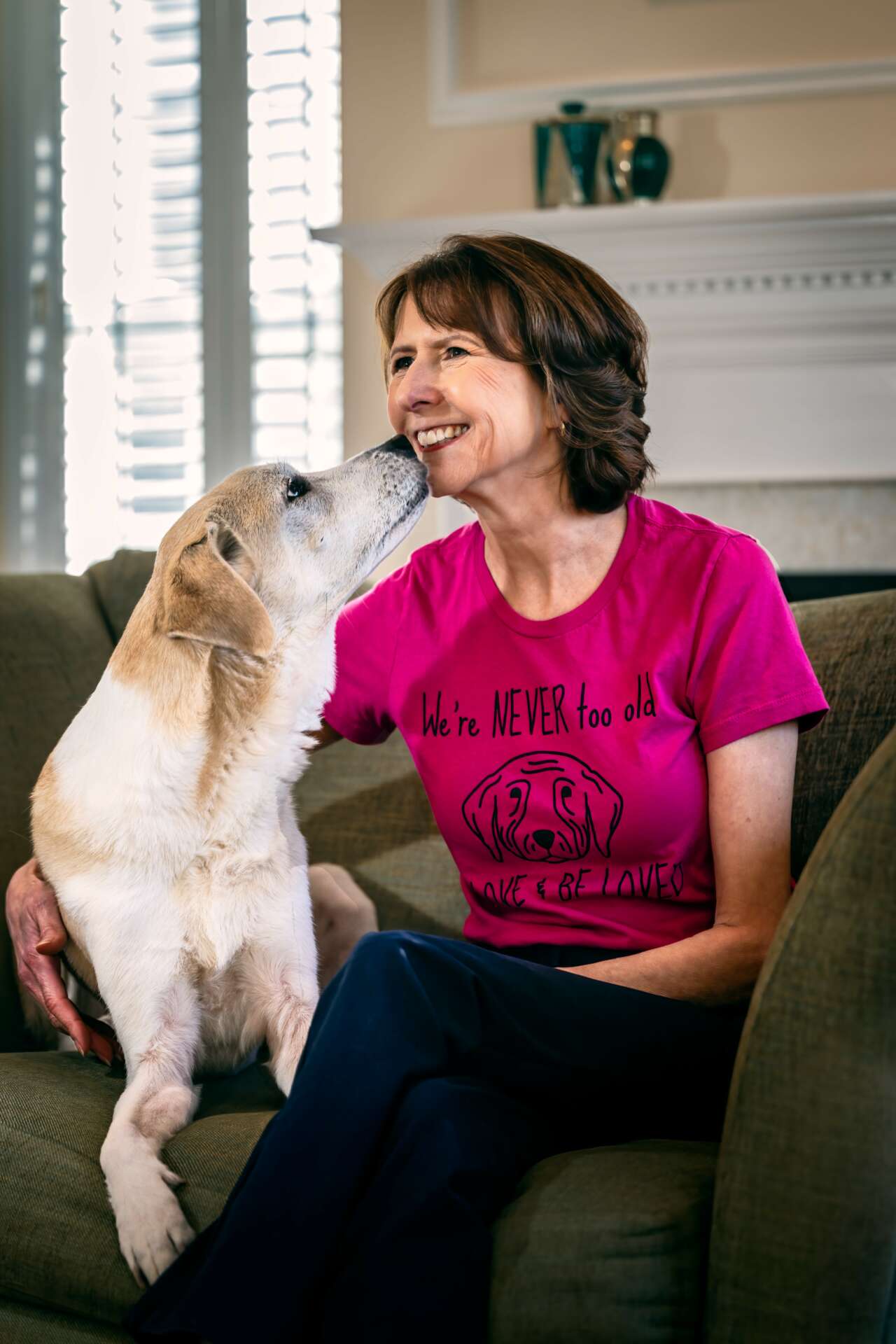We recently connected with Lisa Lunghofer and have shared our conversation below.
Lisa, thanks for joining us, excited to have you contributing your stories and insights. Parents can play a significant role in affecting how our lives and careers turn out – and so we think it’s important to look back and have conversations about what our parents did that affected us positive (or negatively) so that we can learn from the billions of experiences in each generation. What’s something you feel your parents did right that impacted you positively.
I was fortunate to grow up with two extremely loving parents who believed I could achieve anything I set my mind to and encouraged me to pursue my passions. When I graduated from high school, my mom gave me a small “magic coach” with a card attached that read, “This coach is bequeathed to you. It is a further inspiration to take you wherever you want to go. (This is a long-range destination like “psychologist” or “researcher” or “professor” or “senator” or “famous writer” or all of the above, not a short-term destination like Florida. For that you’ll need an airline ticket. 😊) As is the case with most “magical” things, there is no guarantee, only the secret that the stronger the will of the possessor, the stronger the magical power. Intelligence and beauty (which you already have) don’t hurt either. I love you.”
The coach and the note sit prominently on my desk to this day. They are constant reminders that no obstacle is too great and persistence pays off.

Lisa, before we move on to more of these sorts of questions, can you take some time to bring our readers up to speed on you and what you do?
I launched Making Good Work, LLC, to help good causes achieve great results. We provide organizations working to advance the greater good with the tools needed to maximize their effectiveness, achieve their mission, and make their vision a reality.
After getting my Ph.D. in social policy and before founding Making Good Work, I spent nearly 20 years doing research and program evaluation as a government contractor, leading grant-funded national evaluation projects focused on children’s exposure to violence. In 2013, I decided to use the skills I had developed in the for-profit consulting world to help nonprofit organizations. In my work as a contractor and as a volunteer for both human and animal welfare-focused groups, I saw far too many organizations run by people who had enormous hearts but needed help creating a road map for their vision.
Making Good Work offers the range of services nonprofits and public sector clients need to accomplish their mission. From grant writing to strategic planning, program development to evaluation, and hands-on training to organizational development, we can help. We offer hourly and per-project rates to accommodate each organization’s needs and budget.
We have 30 years of experience writing successful proposals, resulting in grants ranging from a few thousand to more than eight million dollars. Whether you need help researching opportunities or responding to them, we can help. We also provide feedback on draft proposals, ensuring your submission meets the funders’ review criteria.
Once you have funding, it’s essential to have a plan to use it. Making Good Work can assist in all phases of the strategic planning process. We gather information on opportunities and challenges within and outside your organization. We work with your staff, board of directors, community partners, and other stakeholders to reach a consensus on long-term objectives and facilitate the strategic planning process, ensuring the final plan provides the road map your organization needs to accomplish your goals.
We also offer support to implement the strategic plan. We help our clients manage the plan’s implementation by working with them to identify objectives, action steps, timelines, expected outcomes, and measures of success. We design and implement evaluation strategies that provide the information needed to ensure clients are on track to achieve their mission.
Substantive areas in which we work combine interests from my first career and my new-found passion for human-animal programs. They include public health, behavioral health, child welfare, criminal justice, early childhood education, domestic and sexual violence, youth programming, community development, animal welfare, and the human-animal bond.
I am especially proud of the work done to promote the well-being of animals and our connection to them. Examples of this work include a study of approaches to the co-sheltering of homeless people and their companion animals, an evaluation of programs that pair veterans with shelter dogs, the development of a humane education initiative based on a public health model for the Pennsylvania SPCA, and evaluation of Forget Me Not Farm’s mentoring program, which pairs youth aging out of foster care with adult mentors at the Sonoma County Humane Society.

Can you tell us about a time you’ve had to pivot?
In July 2008, I turned on the local news—something I rarely do—and saw a story about a dog named Jeddah who was lost in Northern Virginia. Jeddah’s human dad was in the military, and he and Jeddah were headed overseas for a tour of duty. As Jeddah’s crate was being loaded onto the plane at Dulles Airport, the unthinkable for any dog parent happened—she got out of the crate and ran. A week later, John was tearfully sharing his week-long search for missing Jeddah on the local news. My heart broke as his voice cracked, and he begged viewers to show up the next day to help hang flyers and search for the dog he loved.
For a few seconds, I thought of all the reasons why driving over an hour from my home in Maryland to Northern Virginia to spend Saturday outside in 110-degree heat and humidity looking for somebody else’s lost dog was a really bad idea. Then, I imagined what I would feel if one of my three dogs were lost. And I cried.
I showed up the next day not knowing what to expect but hoping I could at least help in some small way. The experience changed both my life and my career. For the next three months, we searched for Jeddah, and I rode the roller coaster of emotions that comes with trying to find a lost dog. Sadly, we never found Jeddah, but the group who searched for her—myself included—went on to help search for more lost dogs, most with happier endings (who knew there were so many lost dogs in DC?). For months, by day, I was doing my “real job” evaluating federal programs for at-risk children, and the rest of the time, I was hanging lost dog flyers and canvassing neighborhoods where the latest sighting had been reported.
Along the way, I met Laura and her search-and-rescue dog, Chewy, who was called in to follow the scent of the lost dogs whenever there was a potential sighting. They opened my eyes to an amazing world of jobs and programs that actually included animals—animal-assisted therapy, search and rescue, dog-training programs for at-risk youth. The list seemed endless. I was fascinated—and hooked.
After a Ph.D. and more than 15 years of work in the research world, I figured I must have at least a few skills that could be relevant to this new-to-me world of animal programs. My Google searches turned up one fascinating program after the other. With more moxie than I ever knew I had, I emailed each organization’s Executive Director with a message that went something like this: “I’m an animal lover who also happens to be a researcher. I know how to write successful grant proposals, develop programs, and do program evaluations. Would you like to collaborate? Oh, and by the way, I’ll do everything for free.” For the next two years, I spent nights and weekends doing pro bono work for animal-related nonprofits—from California to Chicago to Tanzania.
Then, in 2012, the economic downturn finally caught up with my “real” job, and I found my paid hours drastically reduced. I remember thinking, “Wow, here’s a choice. I can either find another 9 to 5 job and do what I have been doing my whole career, or I can take a leap and try to make a living from following my passion for the human-animal bond.” Honestly, it wasn’t much of a choice. A month later, I founded Making Good Work, LLC, and a few months after that, I got my first paying client. I’d be less than truthful if I said I wasn’t scared. But it didn’t stop me. Finding your purpose makes you fearless.

Are there any books, videos, essays or other resources that have significantly impacted your management and entrepreneurial thinking and philosophy?
My entrepreneurial philosophy was shaped by fortune cookies—two, to be precise. During those dark days in 2012, when I faced a crossroads in my career, my inspiration came in a Chinese food takeout bag.
I was about to lose my full-time job, and I had a choice to make. I could try to find a new job doing what was safe and what I had been doing for the past 15 years or follow my heart and strike out on my own, pursuing what many people said was my “crazy” passion for animals.
I believe in signs and can no longer keep track of the “cosmic coincidences” that propelled me on my journey to small business ownership. The night in 2012, when I opened my fortune cookies, my future was clear. The first fortune said:
“There is in the worst of times the best chance of a happy ending.” The second one sealed the deal: “Struggle as hard as you can for whatever you believe in.”
The next day, I submitted my paperwork to establish Making Good Work. Fourteen years later, those cookie fortunes are still taped to my computer monitor.
Contact Info:
- Website: makinggoodwork.org
- Linkedin: https://www.linkedin.com/in/llunghofer/
Image Credits
Pink shirt photo: William MacFarland Photo with black dog: James Kegley


